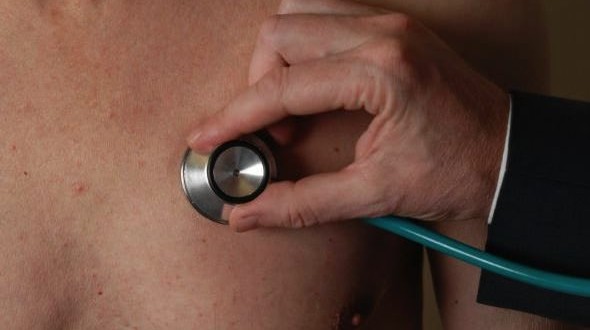Being hospitalized for surgery is enough to make the heart race. And new research suggests an abnormal heartbeat prior to surgery may raise the risk of stroke.
The recent study looked at the effects of atrial fibrillation (also known as an irregular heartbeat) on patients in the hospital for surgery.
The researchers found that an irregular heartbeat before surgery increased patients’ long-term risk of stroke, particularly if the surgery was not heart-related.
Gino Gialdini, M.D., of Weill Cornell Medical College, New York, and colleagues conducted a study to determine the long-term risk of ischemic stroke after perioperative AF of patients undergoing surgery, using administrative claims data from California acute care hospitals between 2007 and 2011. For this study, perioperative was defined as AF newly diagnosed during the hospitalization for surgery.
The study included 1,729,360 eligible patients with an average follow-up time of 2.1 years. Among these patients, perioperative AF was documented in 24,711 cases (1.43 percent). After discharge from the index hospitalization for surgery, 13,952 patients (0.81 percent) went on to experience an ischemic stroke. At 1 year after hospitalization for noncardiac surgery, cumulative rates of stroke were 1.47 percent in those with perioperative AF and 0.36 percent in those without AF. At 1 year after cardiac surgery, cumulative rates of stroke were 0.99 percent in those with perioperative AF and 0.83 percent in those without AF.
Analyses indicated that perioperative AF after noncardiac surgery was associated with twice the risk of stroke and a 30 percent greater risk after cardiac surgery.
“Our results may have significant implications for the care of perioperative patients. The associations we found suggest that while many cases of perioperative AF after cardiac surgery may be an isolated response to the stress of surgery, perioperative AF after noncardiac surgery may be similar to other etiologies of AF in regard to future thromboembolic risk. Our results suggest the need for future studies involving long-term ambulatory cardiac monitoring to better delineate the risk associated with transient vs persistent perioperative AF, as well as randomized clinical trials to determine optimal strategies for antithrombotic therapy in patients with perioperative AF and a significant burden of other risk factors for stroke,” the authors write.
Agencies/Canadajournal

 Canada Journal – News of the World Articles and videos to bring you the biggest Canadian news stories from across the country every day
Canada Journal – News of the World Articles and videos to bring you the biggest Canadian news stories from across the country every day


Mr. Dufoe said he was being followed closely and was relieved that his atrial fibrillation came to light.